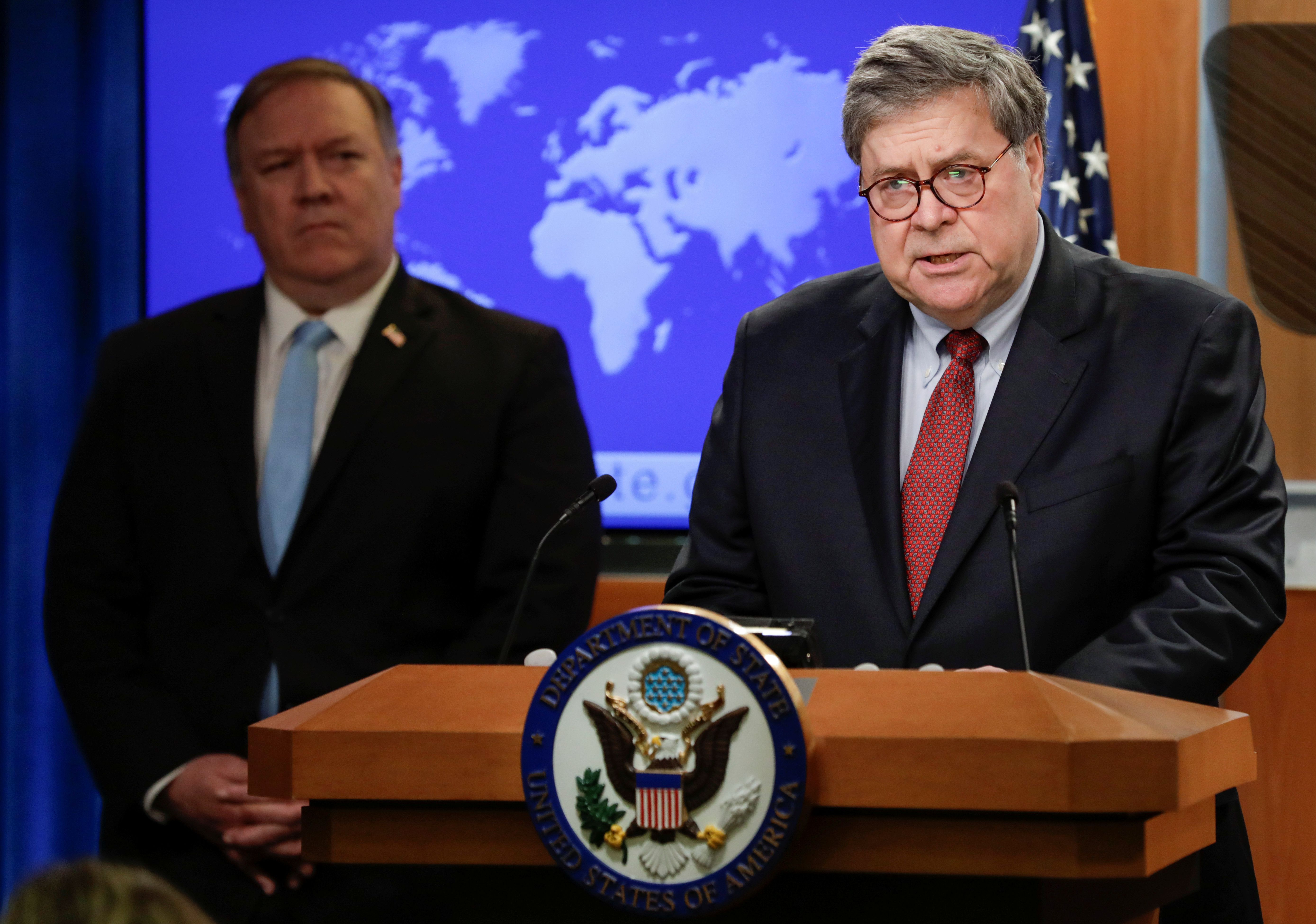U.S. Enacts Sanctions to Stop ICC Proceedings

The Announced Measures
The sanctions include a U.S.-located-assets freeze and a ban on entry to the U.S. The block on assets applies to two groups. The first one comprises persons directly involved in the investigation, arrest, detainment, or prosecution of current or former members of the armed forces or officials of the U.S., NATO countries, or major non-NATO U.S. allies, without the consent of those countries. The second group are persons who support these activities, for example, financially or by providing goods and services. The “persons” the order applies to are not only individuals but also legal persons such as state institutions, intergovernmental and non-governmental organisations (NGOs), and companies. The entry ban covers, in addition to the two groups mentioned above, all employees and agents of the ICC, as well as the spouses and children of all natural persons subject to sanctions.
Thus, in addition to those working for the ICC, the sanctions may potentially affect, for example, NGOs reporting on crimes committed by the U.S. military, victims, and witnesses of these crimes, officials of states providing the court with information on matters related to the U.S., or air carriers providing services to ICC employees carrying out tasks related to these matters. However, specific persons to be targeted are to be determined by the secretary of state in consultation with the secretary of the treasury and the attorney general (in case of employees of the ICC, by the secretary of state directly). Ultimately, the personal scope of the sanctions will be decided on a case-by-case basis. This increases their role as a tool of political pressure.
Difficult U.S.-ICC Relations
The direct reason for the executive order are two proceedings pending before the ICC. The first one concerns crimes committed by Americans in Afghanistan and related crimes in other countries. The second deals with crimes committed by Israelis in occupied Palestinian territory. In the first case, the ICC in March 2020 authorised Court Prosecutor Fatou Bensouda to initiate an investigation; in the second, it is expected to do the same soon. The sanctions are therefore intended to pressure the court to halt its actions against the U.S. and its ally Israel.
The idea of imposing these sanctions enjoys bipartisan support in Congress. In May 2020, 252 representatives and 69 senators from both parties called on Secretary of State Mike Pompeo to support it. According to the congressional representatives and the Trump administration, the ICC’s actions violate the sovereignty of the U.S. and Israel, which have never agreed to submit to its jurisdiction. They accuse the court of politicisation and purported unfair treatment of U.S. and Israeli citizens. They also put forward other arguments for which there is no evidence (e.g., Russian influence on ICC action) or that are inconsistent with the facts on the ground (e.g., lack of proper guarantees of due process for the accused).
Among the above arguments, only the first one deserves real attention. Indeed, neither the U.S. nor Israel are parties to the Rome Statute (the treaty that established the ICC). At a conference at which its provisions were negotiated, they voted against its adoption. The U.S. believed that placing its citizens under the jurisdiction of the court would seriously impede the actions of the U.S. intelligence and military in the world; Israel objected to including the transfer of civilians into the occupied territories in the catalogue of war crimes, fearing actions against its settlements in the West Bank. Ultimately, both countries signed the Rome Statute in 2000, hoping that it could be changed, but when this proved unrealistic, already in 2002 they declared that they did not intend to ratify it. Contrary to the U.S. allegations, the provisions of the statute do not depart from the principles traditionally adopted in national criminal laws. Admittedly, it allows the ICC to take steps against the citizens of countries that are not states parties, but only in relation to activities that took place on the territories of ICC countries. To protect their own citizens from prosecution by the ICC, the US or Israel can simply refrain from violations of humanitarian law on the territories of the parties to the statute. The real reason for the U.S. protests is rather the reluctance to subject its organs to any restrictions on their freedom of action while the organs of countries such as China or Russia—countries competing with the U.S. and also not parties to the ICC—are not subject to them.
The U.S. has already taken actions openly aimed at the ICC in the past. For example, a law in 1999 forbade ICC funding by the U.S. and blocks the extradition of American citizens to countries that could hand them over to the court. Another one from 2002 authorised the president to use the armed forces to free American citizens if arrested by the ICC. To prevent Americans from being handed over to the court, the U.S. has also concluded bilateral immunity agreements with more than 100 countries. However, when it was in the U.S. interest, it has tolerated, and even occasionally supported, the court’s actions against citizens of other countries (e.g., Sudan, Libya, DR Congo, Uganda). That is why, for example, during the presidency of Barack Obama, the U.S. handed over to the ICC two indictees—Bosco Ntaganda and Dominic Ongwen.
The International Dimension
The ICC, international organisations, and several states have criticised the introduction of the sanctions. Prosecutor Bensouda described it as an attack on the interests of the victims of international crimes, for whom the ICC is often the last hope for justice. She declared she would continue to carry out the Afghan investigation. Concern, but also steadfast support for the ICC, was expressed on behalf of the EU by the High Representative for Foreign and Security Policy Josep Borrell. The U.S. decision was also criticised by the UN and some states-parties to the Rome Statute, particularly Belgium, France, the Netherlands, Germany, and the United Kingdom. The U.S. step was met with positive response only from Israeli Prime Minister Benjamin Netanyahu, who had appealed for the sanctions on the ICC in January 2020.
Israel is the only U.S. ally whose activities are currently the subject of proceedings conducted by the ICC without its consent and therefore meets the conditions to be protected under Trump’s order. It is less obvious whether the same applies to the Philippines, which had withdrawn from the ICC, although a case that had been initiated against it before then continues in accordance with the statute of the court. On the other hand, the wording of the regulation suggests that U.S. allies who are still parties to the Rome Statute cannot count on protection against the ICC’s actions, as in their case the condition of prosecuting “without the consent” of a U.S. ally will not be met. Such countries include Lithuania, Poland, and Romania, because of suspicions that they hosted so-called “black sites”—CIA detention centres where prisoners being transported by the U.S. from Afghanistan to bases elsewhere, such as Guantanamo Bay, Cuba—were allegedly mistreated.
Conclusions
The sanctions announced on 11 June are confirmation of the U.S. instrumental approach to international criminal justice, which according to the Americans serves not so much to implement justice but rather to leash and deal with political opponents. The sanctions are also an attack on the independence of the ICC, which, despite this, will most likely not give in to U.S. pressure and, for example, will not close its investigation into the Afghan case. In the short term, however, they may encourage other countries to take similar steps if the ICC investigates the crimes committed by their citizens, for example, Russia in connection with the situation in Ukraine, currently under ICC scrutiny.
The sanctions are a further blow to the image of the U.S. as a state promoting respect for human rights and humanitarian law. So far, similar U.S. measures have been used only against those who violated such norms, such as those suspected of involvement in the death of Sergei Magnitsky or the persecution of Rohingya people in Myanmar. Now, they are intended to shield the potential perpetrators of international crimes from responsibility.
Due to strong support for the ICC from the EU and its members, the sanctions will become a new point of contention in transatlantic relations. They may also become a source of tension in U.S. relations with Lithuania, Poland, and Romania in particular, as fear of the sanctions may make it difficult for these countries to fulfil their obligations under the Rome Statute. The possible imposition on Polish citizens or entities would potentially deteriorate good Polish-American ally relations.


